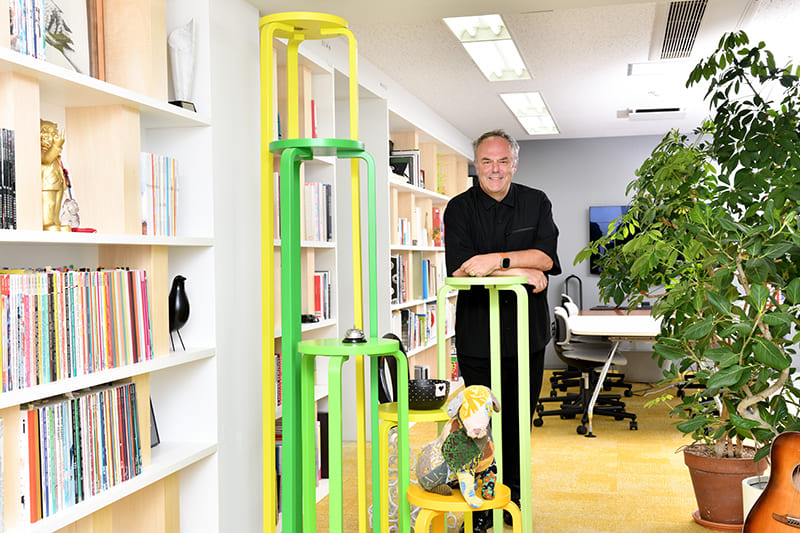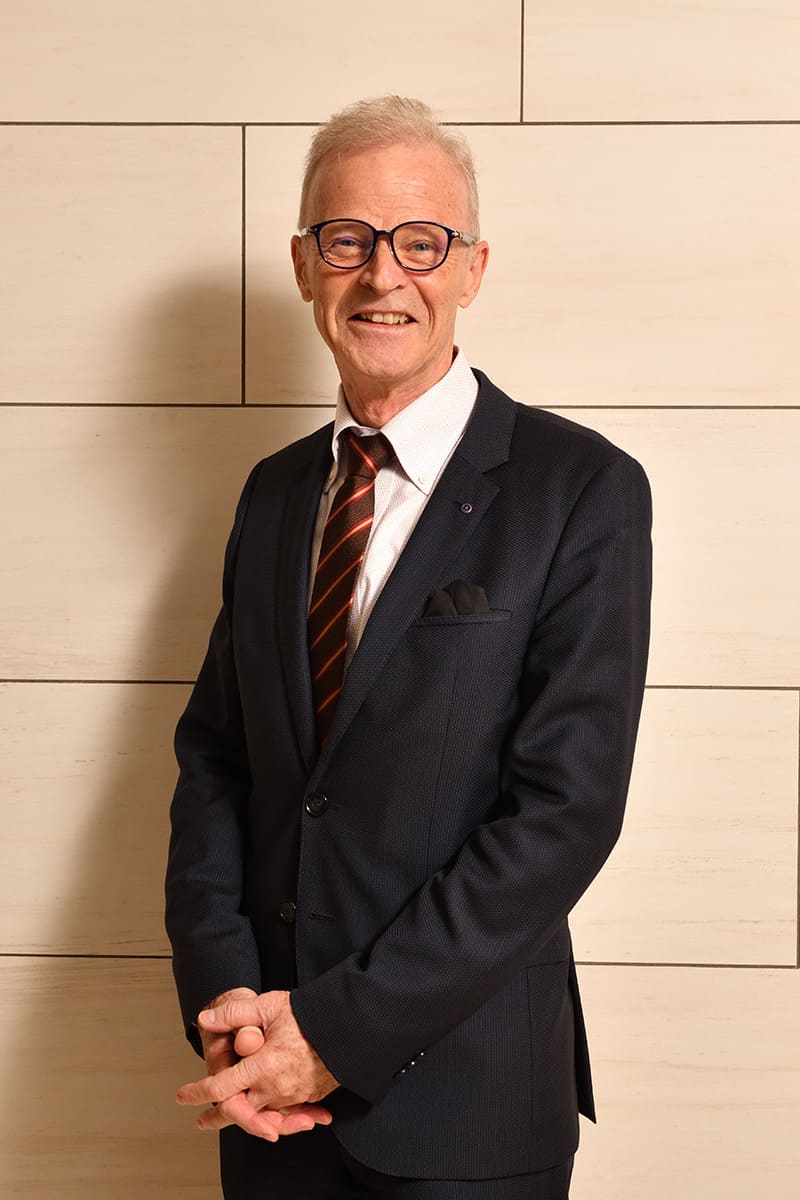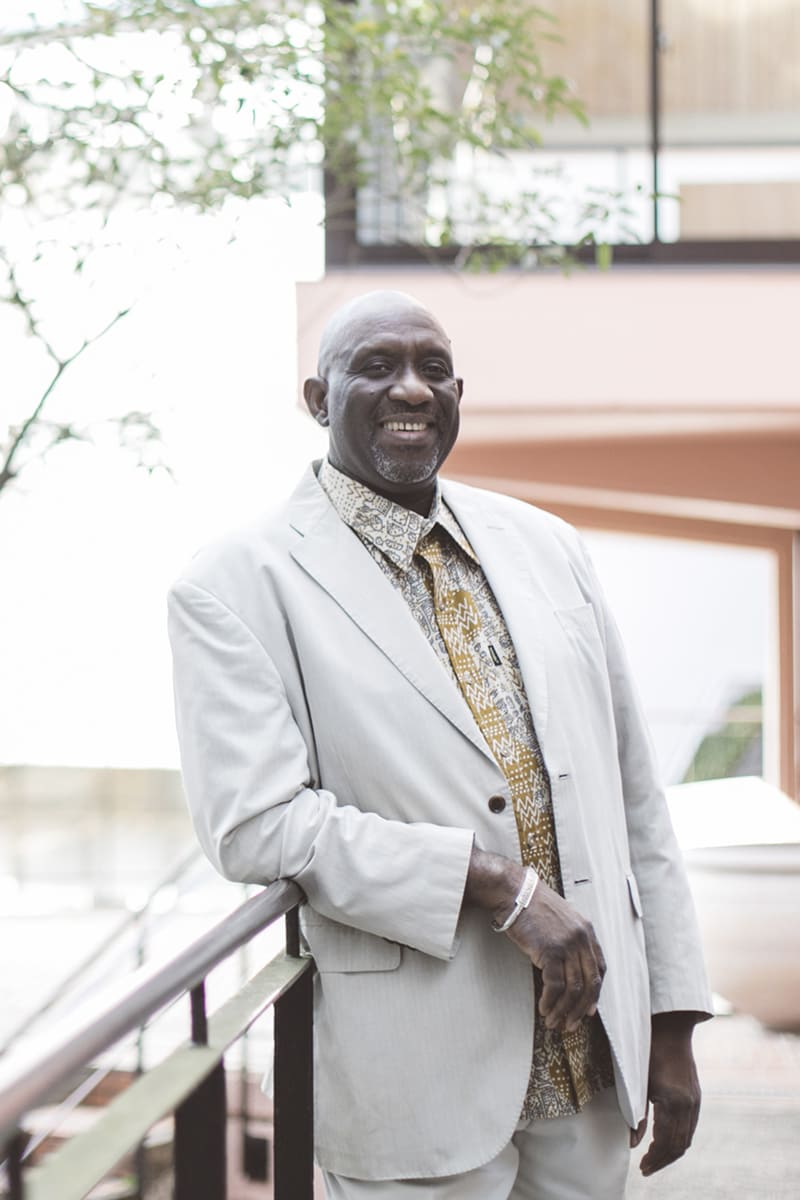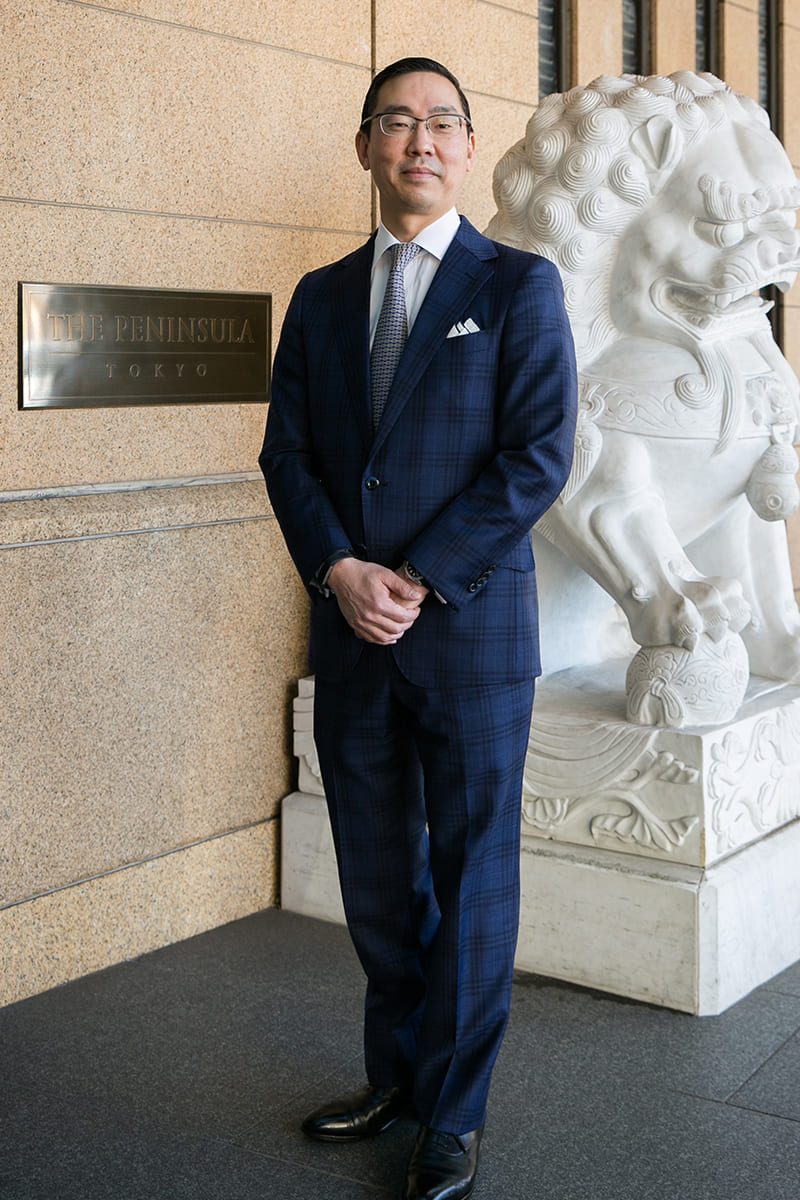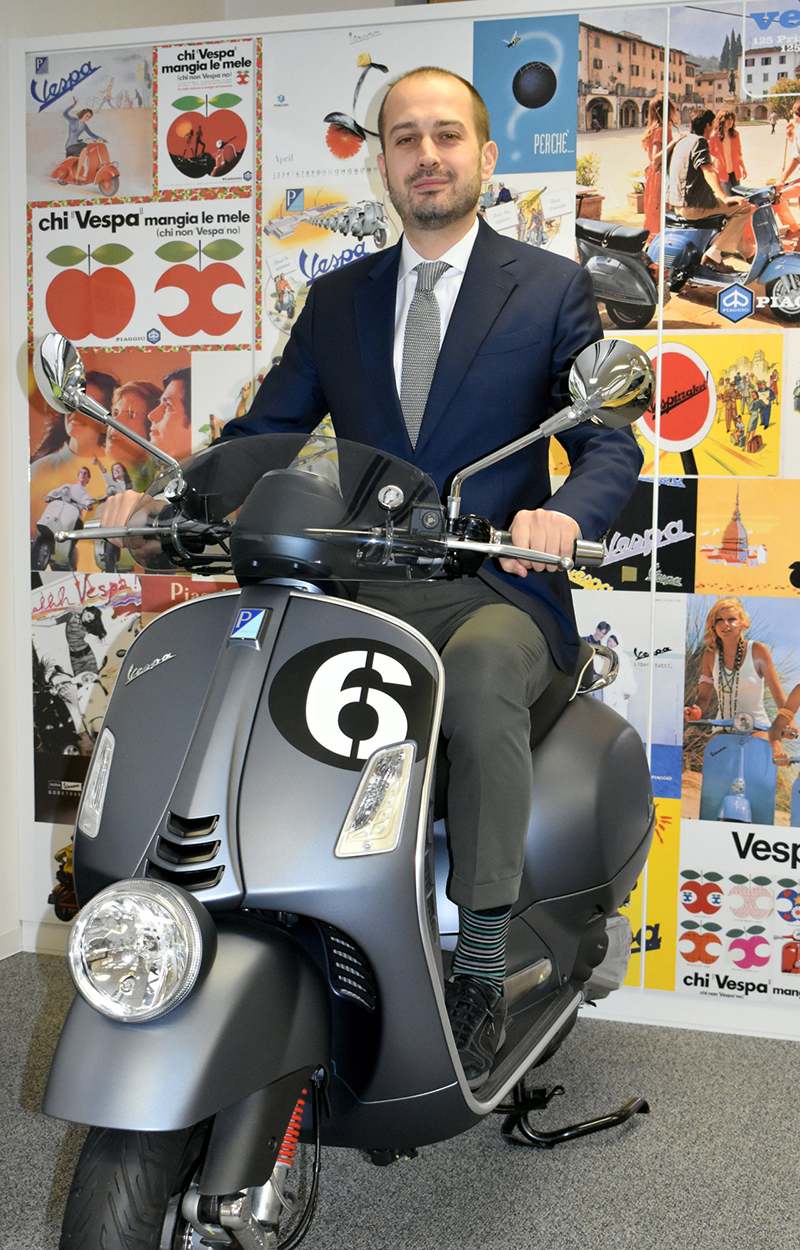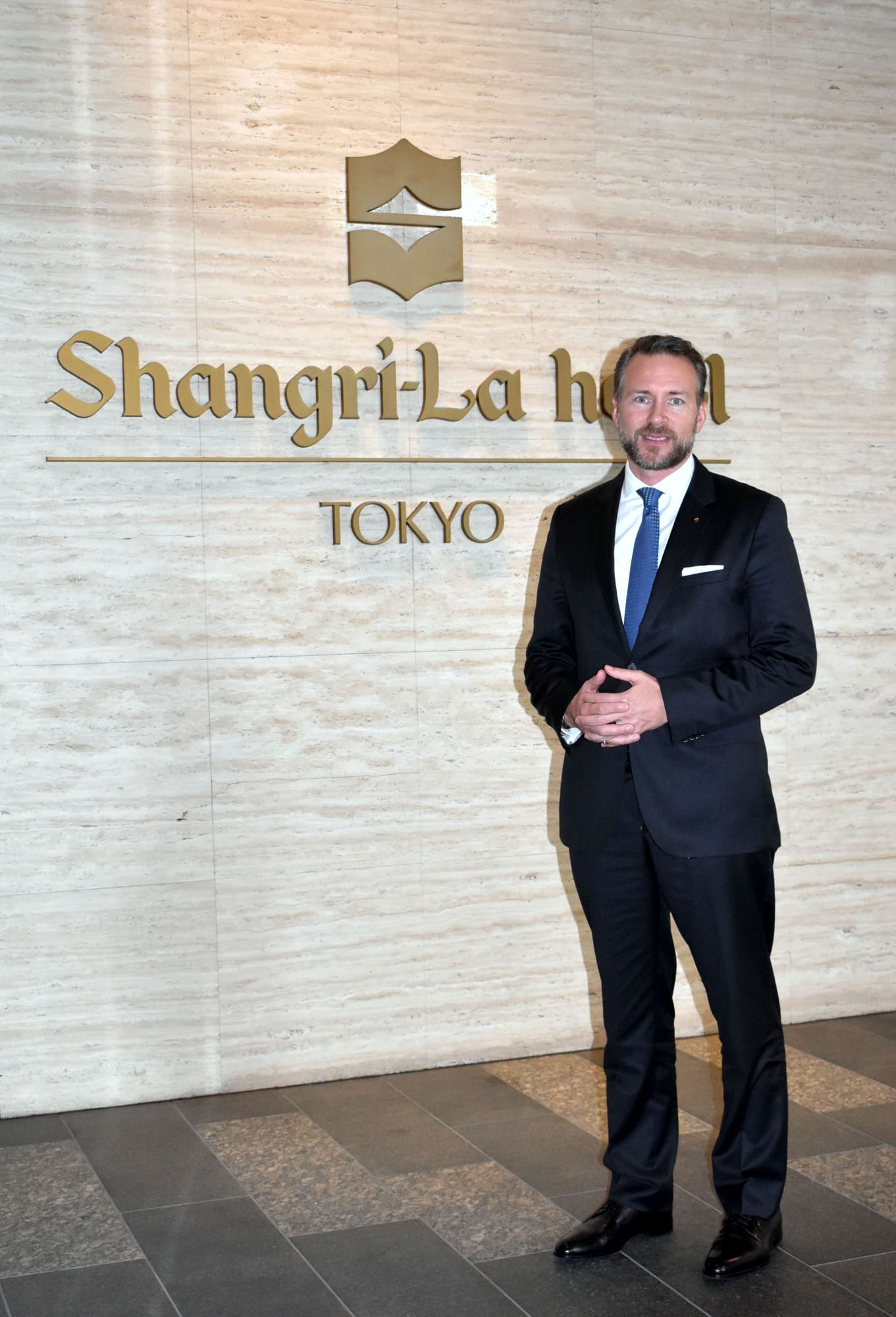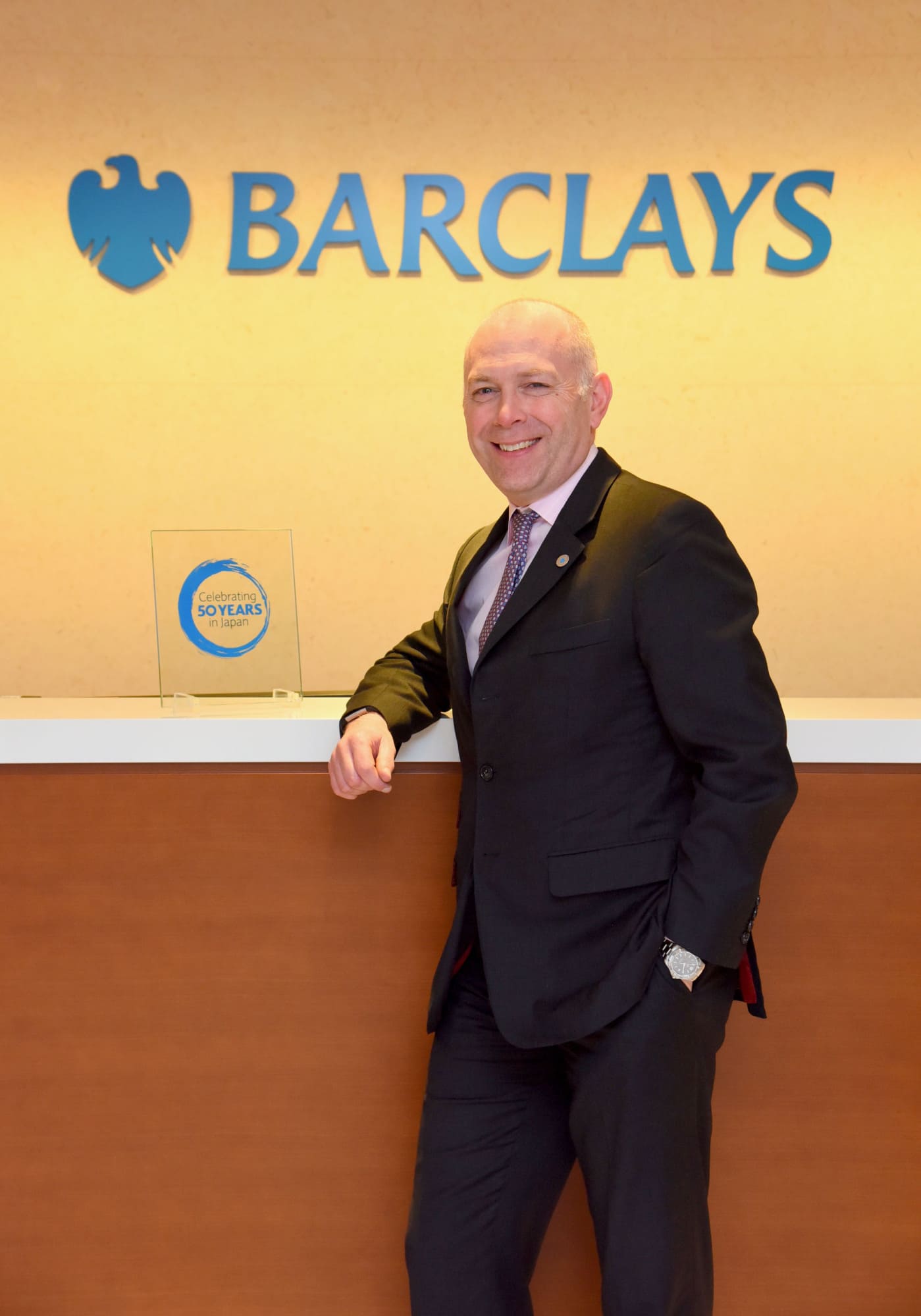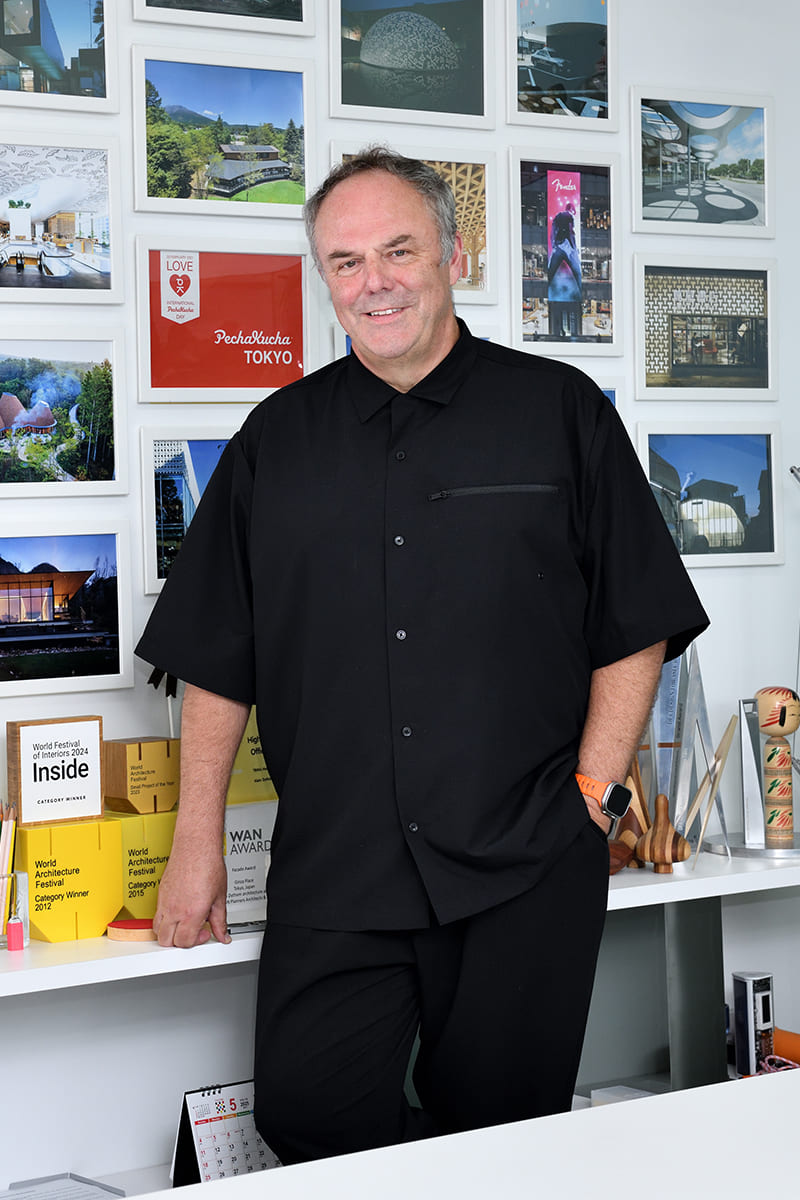
July 03, 2025
Briton brings artistic view to Japanese buildings
Mark Dytham and partner Astrid Klein carve out a reputation for innovation
- Name: Mark Dytham
- Title: Co-founder and Director, Klein Dytham Architecture
- URL: https://www.klein-dytham.com/
- Hometown: Old Stratford, England
- Years in Japan: 37
A strong respect for design and precision runs in architect Mark Dytham’s family, with three generations employed at a railway works. “If we got on a train, my grandfather would say, ‘This train was made in York’ or ‘That one was made in Doncaster.’ He could tell because the screws in the trains were all set to slightly different angles, depending on the factory,” Dytham recalled.
He grew up in the village of Old Stratford in the English county of Northamptonshire, close to Milton Keynes, one of the “new towns” designed by the British government. He credits his initial interest in architecture to watching the town being built “on our doorstep” in the 1960s.
Laying career foundations
Dytham worked for the town’s development corporation as a teenager during his summer holidays. One of his projects was designing a cricket pavilion, giving him a portfolio with a completed project before he even entered the Royal College of Art in London.
Completed in 1967, Milton Keynes had a strong connection with Japan. It attracted a large number of Japanese firms and was at one time the location of Europe’s largest Japanese school, Gyosei International School U.K. “I won the Milton Keynes Development Corp. travel scholarship, worth £2,500 (about ¥570,000 at the time), with a proposal based on going to Japan,” said Dytham.
By coincidence, friend and fellow Royal College of Art alumnus Astrid Klein won a different scholarship around the same time, and so the two budding architects headed to Tokyo in 1988. Knowing the right person opened doors — in this case, those of architect George Kunihiro, now also a noted educator in the field.
Kunihiro facilitated meetings for the duo with a number of prominent firms in Tokyo, and one particular architect was a perfect fit. “Toyo Ito had just won the worldwide ticketing office project bid for Japan Airlines, so he was going to be building offices in New York, London and Paris. When we arrived, it seemed like a match made in heaven!” Dytham said.
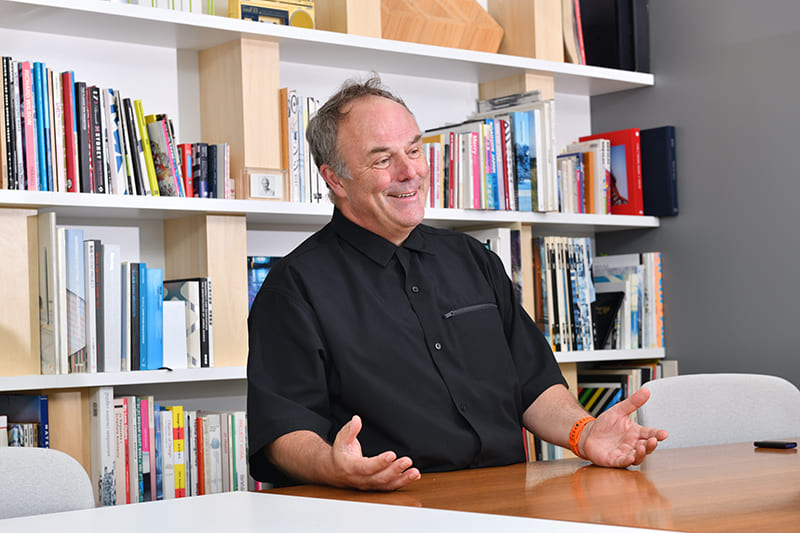
Blueprint for success in Tokyo
Dytham and Klein set up their own company, Klein Dytham Architecture, in their third year in Japan in 1991. “Looking back, what surprises me is how the path sort of makes itself for you. It was just one thing leading to another, but it has all seemed very natural,” Dytham said. “I think the most important thing is that we’re still a 20-person office. Astrid and I don’t necessarily do all of the drawings or come up with all of the ideas, but this setup lets us keep an eye on things and helps maintain quality.”
Over the years, they have carved out a reputation for innovative architecture with a colorful, vibrant aesthetic. Dytham says that some 95% of Japanese buildings are designed not by architects, but by construction companies. “They’re perfectly built and they meet all the requirements, but they look mediocre and gray and boring,” he said. “We just see so many opportunities here! And maybe we get a bit more creative license because we are perceived as foreigners.”
When possible, they try to make use of existing architectural features for their projects. One example from 2023 is the Karuizawa Commongrounds Bookstore in Nagano Prefecture, a 495-square-meter addition to a former seminar house once operated by Aoyama Gakuin University. To enlarge the wooden 1950s building while preserving its essence, the architects wrapped it in a sweeping “skirt” with an undulating roof overhanging a glass facade.
Another recent project that stands out for Dytham is the Fender Flagship Tokyo building in Harajuku, which opened in 2023 as the iconic guitar brand’s first dedicated store. Nile Rodgers and Bruno Mars are among the big names in music who have visited.
“It’s positioned at the crossroads of luxury and creativity, and you might just meet somebody famous,” Dytham said. In order to compete with the convenience of online shopping, brick-and-mortar retail spaces should provide an immersive experience for customers, he has said. His industry peers clearly agree, as the building won Retail Project of the Year at the 2024 World Architecture Festival.
Something to talk about
Architecture isn’t the only creative medium where Dytham and Klein have made their mark. They are the founders of PechaKucha, a fast-paced means of visual storytelling, showing 20 images for 20 seconds each. What began as a single event for industry professionals in 2003 has grown into a global movement, with PechaKucha Nights now held in over 1,300 cities worldwide. Although the event series is licensed globally, the team chose not to charge licensing fees, while limiting licenses to one per city order to maintain quality.
It was Yukinari Hisayama, a key member of their firm, who came up with the name PechaKucha, which means “chit-chat” in Japanese. “He has this shirt that says, ‘I named a global event series and all I got was this lousy T-shirt,’” Dytham said with a smile.
With Milton Keynes — no longer quite the “new town” it once was — celebrating its 60th anniversary in 2027, Dytham is in talks with the MK Gallery about an advisory role for an upcoming exhibition, in conjunction with the Architecture Foundation (a London-based nonprofit dedicated to supporting architectural culture). He has also been approached about participating in an oral history project connected to the anniversary.
As for his role at Klein Dytham, he doesn’t see things slowing down anytime soon. “I want to be a part of every job we do. When it gets too big, you lose touch with it. You want to know where the last screw is going to go in a project,” he said, echoing the same care and attention to detail as his grandfather, who could read the story in a single screw on a train.
